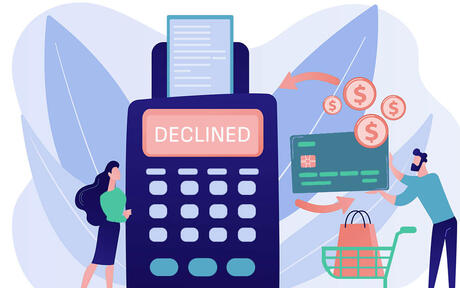If your business accepts credit and debit card payments, particularly online, you're familiar with the critical role of a merchant account. This specialized bank account allows your business to process card transactions. However, not all businesses fit neatly into a "standard" box. Many, especially in burgeoning or specialized sectors, are classified as "high risk" by traditional banks and payment processors.
So, what makes a business "high risk"? Several factors contribute, including:
- Industry Type: Certain sectors inherently carry higher risks (e.g., adult entertainment, CBD, gambling, travel, nutraceuticals, online gaming, crypto, dating, Kratom, MLM, pharmacies, telemedicine).
- High Chargeback Rates: Industries prone to customer disputes and chargebacks.
- New Businesses/Limited Processing History: Startups often lack the historical data that traditional processors prefer.
- High Average Transaction Volume or Value: Businesses processing a large number of transactions or high-value sales.
- Selling Digital Goods or Services: These can be perceived as higher risk due to ease of fraud or intellectual property concerns.
- International Sales: Cross-border transactions often come with increased risk.
If your business falls into one or more of these categories – whether you're an eCommerce entrepreneur, a startup, or operate in a challenging industry – securing the right high-risk merchant account provider is paramount. The good news? You're not out of luck. Many specialized payment processors focus specifically on high-risk credit card processing solutions, understanding the unique needs of these businesses.
The Indispensable Benefits of a High-Risk Merchant Account
Far from being a drawback, a high-risk merchant account is an essential tool for businesses that require robust payment processing. These specialized accounts offer:
- Ability to Accept Payments: Crucially, they provide the necessary infrastructure to accept credit and debit card payments, opening up your market.
- Support for High Transaction Volume: Designed to handle significant transaction flow without triggering red flags.
- Enhanced Fraud Protection: Many high-risk payment gateway solutions come with advanced fraud prevention tools tailored to common risks in these industries.
- Chargeback Prevention Tools: Access to services and strategies to mitigate and manage chargebacks effectively, reducing financial loss.
- Flexibility in Payment Types & Currencies: Essential for businesses operating in a global marketplace or accepting diverse payment methods, including cryptocurrency payments for business.
- Specialized Expertise: Providers understand the regulatory nuances and operational challenges of industries like adult entertainment merchant accounts, CBD merchant account services, gaming merchant accounts, and more.
While it's true that high-risk merchant accounts often come with higher fees than standard accounts due to the increased risk for the processor, the investment is usually well worth it for uninterrupted payment processing and business growth. When you compare credit card processing fees for high-risk accounts, focus on value, support, and long-term reliability over just the lowest rate.
How to Choose a High-Risk Merchant Account: A Comparison Guide
Selecting the best merchant account for your high-risk business requires careful consideration. It's not just about finding any provider, but the right one. Here’s a detailed approach to your merchant account comparison:
Assess Your Business Needs:
- Industry Specificity: Are you looking for an adult entertainment merchant account, a CBD merchant account, a gaming merchant account, a travel agency merchant account, or solutions for online gambling payment processing? Look for providers with proven experience in your niche.
- Sales Volume & Average Ticket Size: Your processing volume will heavily influence rates and terms.
- Online vs. In-Person: Do you need a payment gateway for online retail, a virtual terminal vs. a POS system comparison, or a mobile credit card processing comparison?
- Geographic Reach: Do you require offshore merchant account solutions?
Understand Pricing Models:
- Interchange-plus pricing explained: This transparent model typically separates the interchange fee (set by card networks) from the processor's markup. It's often preferred for predictability.
- Tiered Pricing: Can be less transparent, bundling various transaction types into tiers.
- Flat-Rate Pricing: Simple, but can be more expensive for higher volumes. Always compare credit card processing fees meticulously, looking for hidden charges or long-term contracts.
Evaluate Features and Support:
- PCI Compliance for Small Businesses: Ensure the provider helps you meet these crucial security standards.
- Fraud Prevention & Chargeback Management: Tools and services to protect your revenue.
- Integration Capabilities: Does it integrate seamlessly with your existing e-commerce platform (e.g., credit card processing for Shopify stores) or accounting software?
- Customer Support: Responsive and knowledgeable support is critical, especially for complex high-risk scenarios.
Applying for a High-Risk Merchant Account: What You Need to Know
The application process for a high-risk merchant account requires transparency and thorough preparation. Specialized providers are equipped to handle these applications, but being prepared helps ensure a smoother approval.
Key Information to Prepare:
- Business Information: Legal name, address, tax ID, business type.
- Processing History: If applicable, provide recent processing statements (typically 3-6 months).
- Financial Records: Bank statements, balance sheets, profit & loss statements.
- Website Information: A fully operational website with clear terms of service, privacy policy, and contact information is crucial for secure online payment processing solutions.
- Chargeback Ratios: Be honest about any past chargeback issues.
- Owner's Personal Information: Including credit history.
Crucial Tip: Always be honest and provide accurate information. Misleading details will only delay or lead to the denial of your application.
Reducing Risk & Optimizing Your High-Risk Business Operations
Even with a specialized merchant account, proactive risk management is key for high-risk businesses. Implementing these strategies can help reduce chargebacks, prevent fraud, and potentially lead to better rates in the long run:
- Clear Returns and Refund Policy: Publish a conspicuous and unambiguous policy on your website. This is fundamental for chargeback prevention for high-risk businesses.
- Detailed Transaction Records: Maintain meticulous records of every transaction, including customer communication. This aids in disputing chargebacks.
- Robust Customer Service: Prompt, helpful customer support can resolve issues before they escalate to a chargeback.
- Fraud Prevention Tools: Utilize address verification service (AVS), card verification value (CVV), IP geo-location, and other fraud filters offered by your online payment gateway.
- PCI Compliance: Regularly review and maintain your PCI compliance for small businesses to protect sensitive cardholder data.
- Transparent Billing Descriptors: Ensure your business name is recognizable on customer statements.
High-Risk vs. Low-Risk Merchant Accounts: Understanding the Distinction
The primary difference lies in the perceived financial risk and operational stability associated with a business.
- High-Risk Merchant Accounts: Associated with industries or business models that pose a higher risk of chargebacks, fraud, or business failure. They often come with higher fees, stricter underwriting, and specialized features. This applies to sectors like adult content, CBD, gambling, travel, nutraceuticals, online dating, crypto, Kratom, MLM, pharmacies, telemedicine, and other industries that often require specific high-risk merchant account providers.
- Low-Risk Merchant Accounts: Cater to businesses with predictable, stable revenue, low chargeback rates, and standard operational procedures. These typically enjoy lower fees and simpler approval processes.
Can My High-Risk Business Still Get a Merchant Account? Absolutely!
Yes, your business can absolutely get a merchant account even if it's considered high risk. The key is to partner with high-risk merchant account providers who specialize in your industry and understand its unique challenges. These providers are equipped to offer you:
- The ability to process payments seamlessly.
- Tailored solutions, even for niches like hemp merchant account solutions, bitcoin payment gateway comparison, or fantasy sports merchant accounts.
- Increased protection from fraud and chargebacks.
To find the right provider for your business, you need a powerful merchant account comparison tool. Our goal at https://merchantaccountcomparison.com/ is to be your go-to resource, making it simple to compare merchant services and secure the ideal online payment gateway for your specific needs.
Get a Quick Recommendation & Start Processing Payments!
Ready to find the best payment gateway for online retail or the perfect low-cost merchant account for a small business in a high-risk sector? Our platform simplifies the process.
Are you already processing credit card payments? Or are you a new startup wondering how to choose a merchant account? We can help!
Answer a few quick questions now with our comprehensive merchant account comparison tool to see which credit card processing solutions are the right fit for your business.
Get a quick recommendation
Are you already processing credit card payments?




